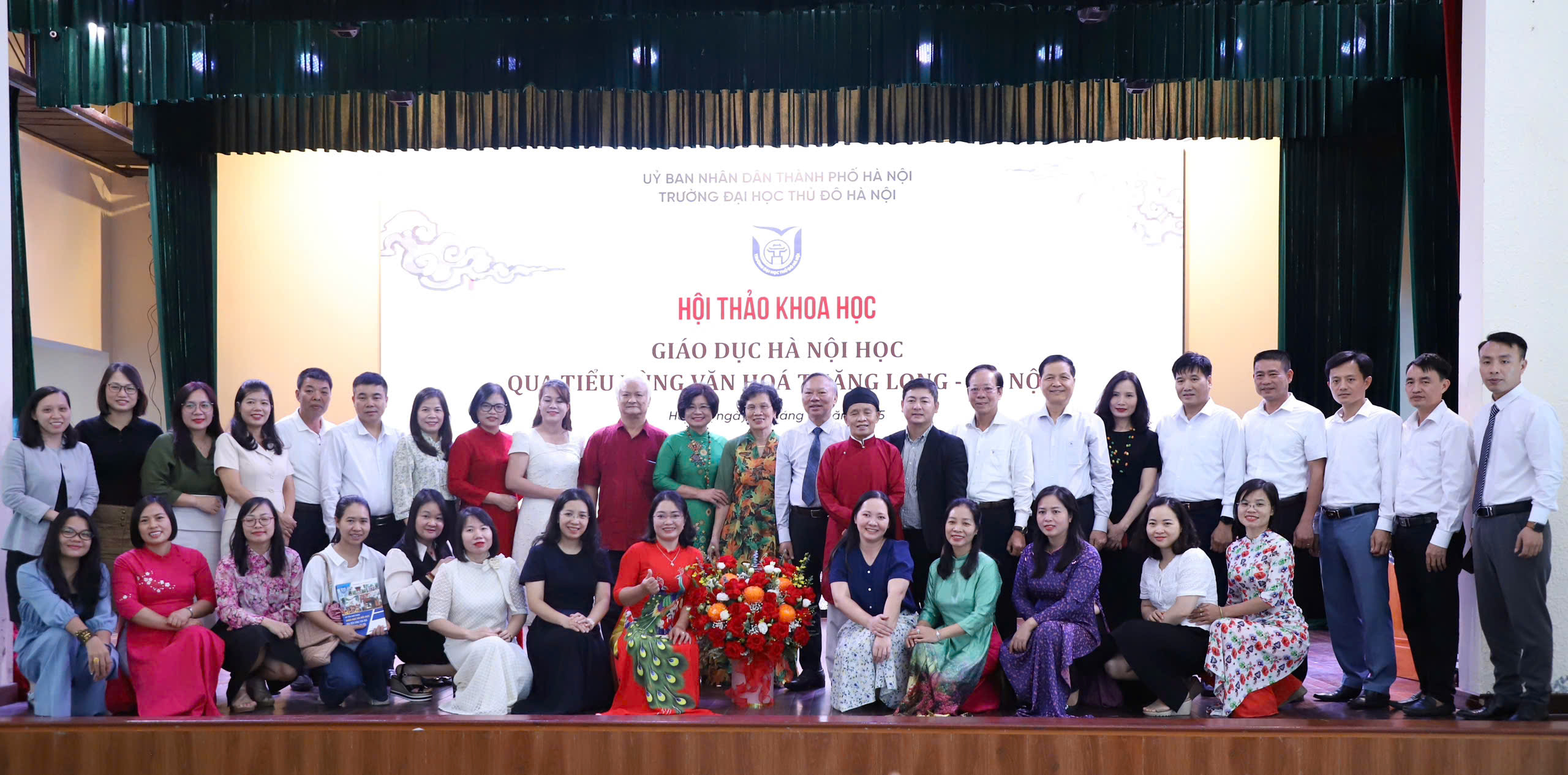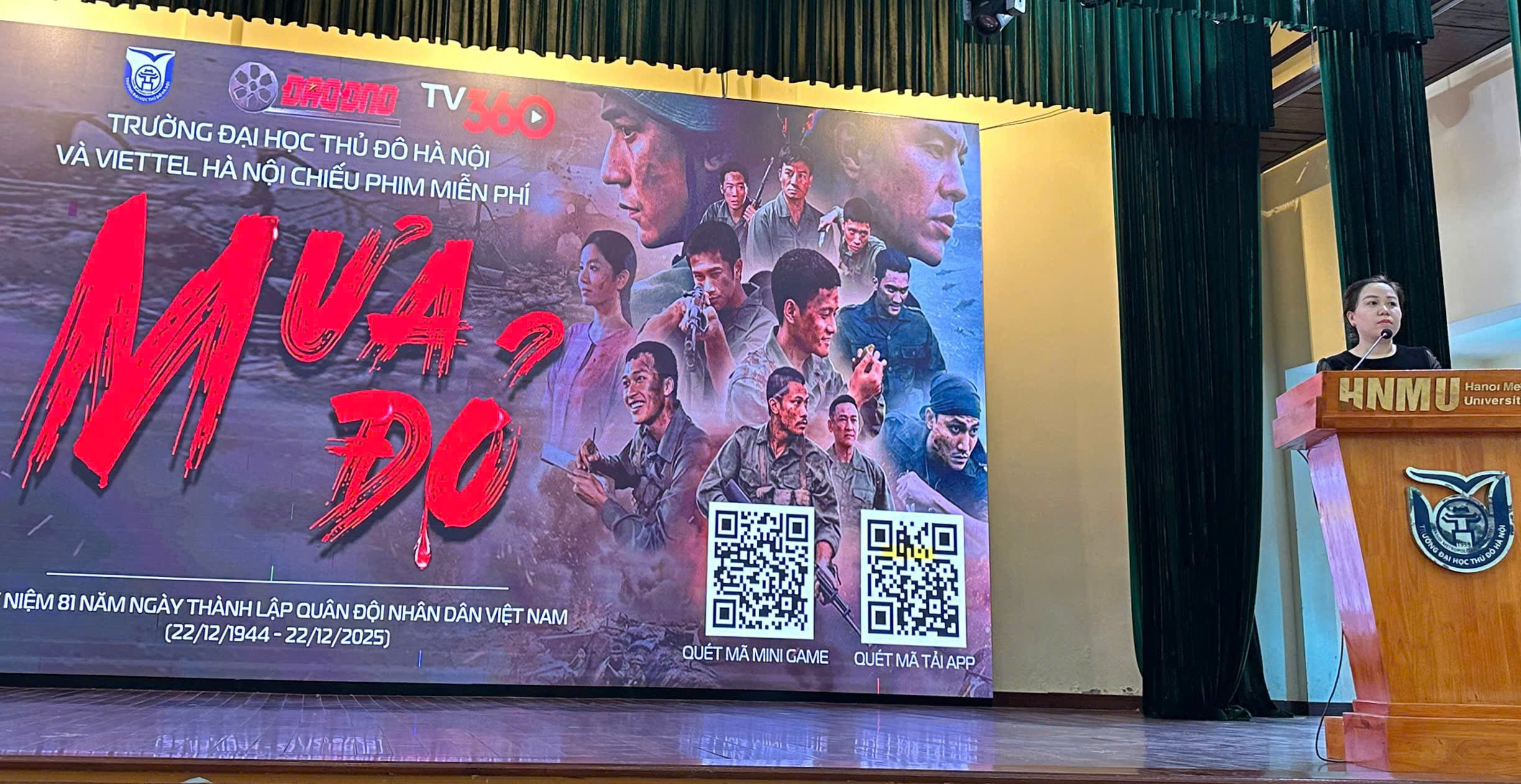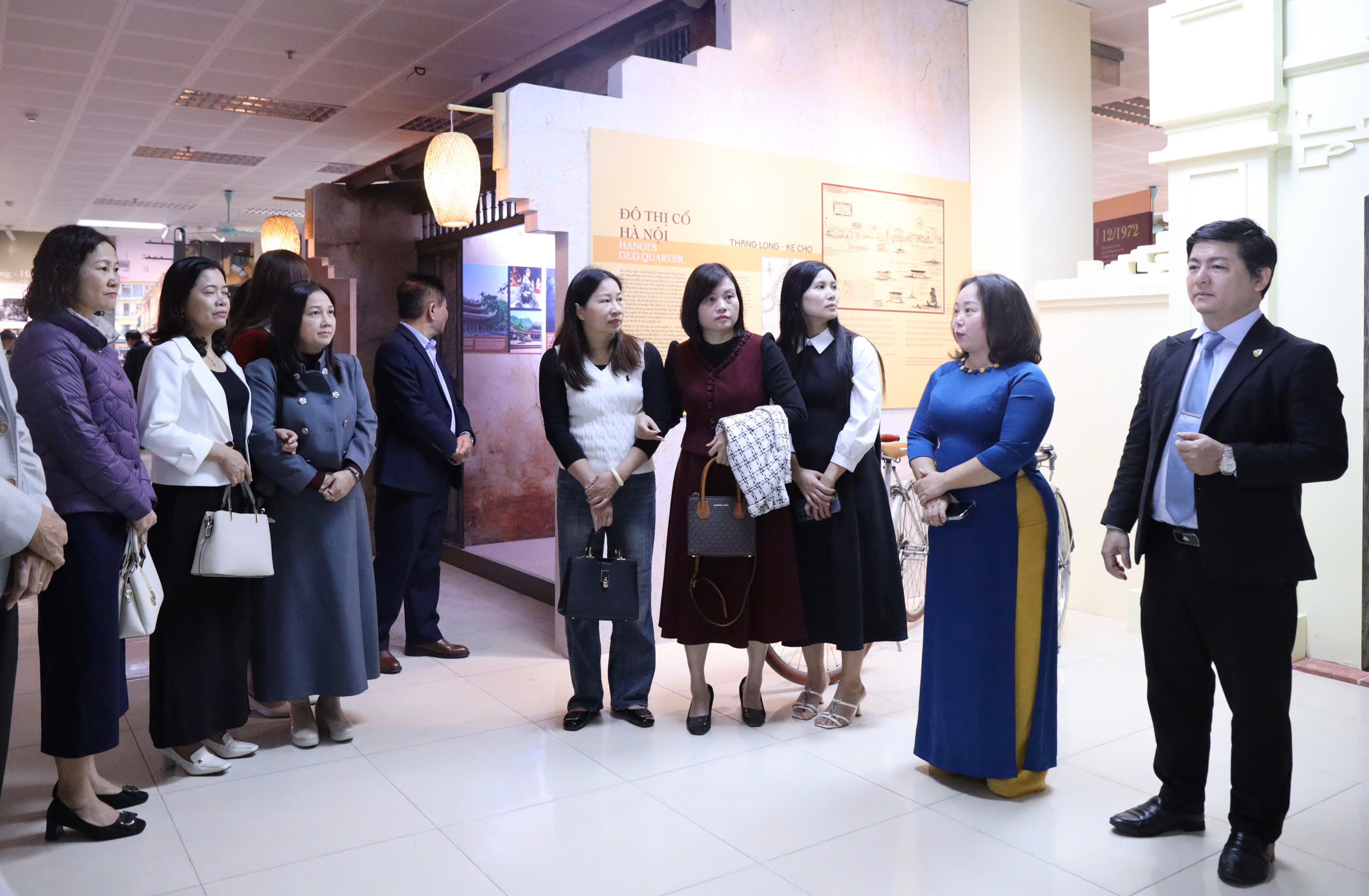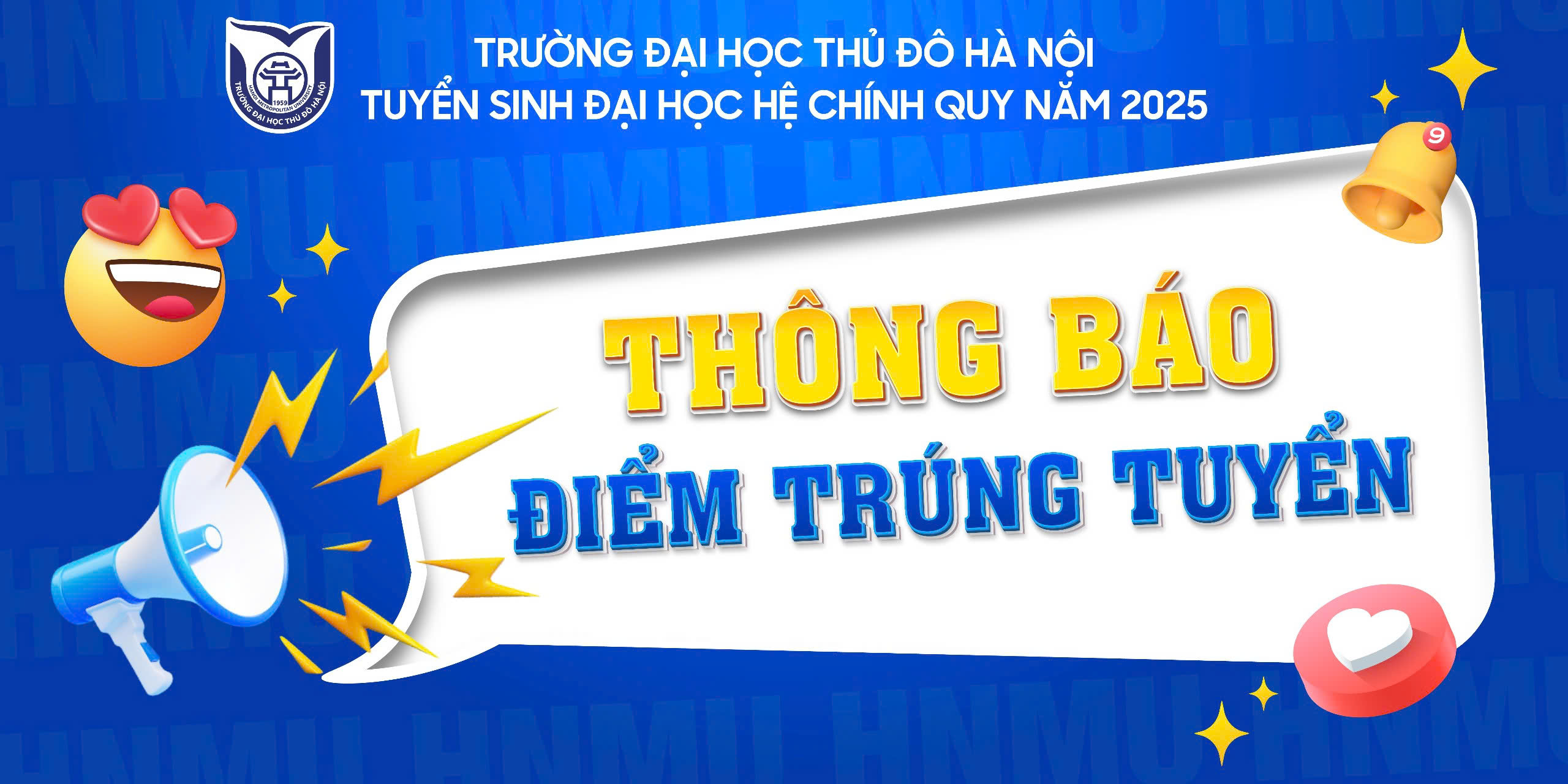Connecting Knowledge – Spreading Thăng Long – Hanoi’s Cultural Values through Hanoi Studies Education
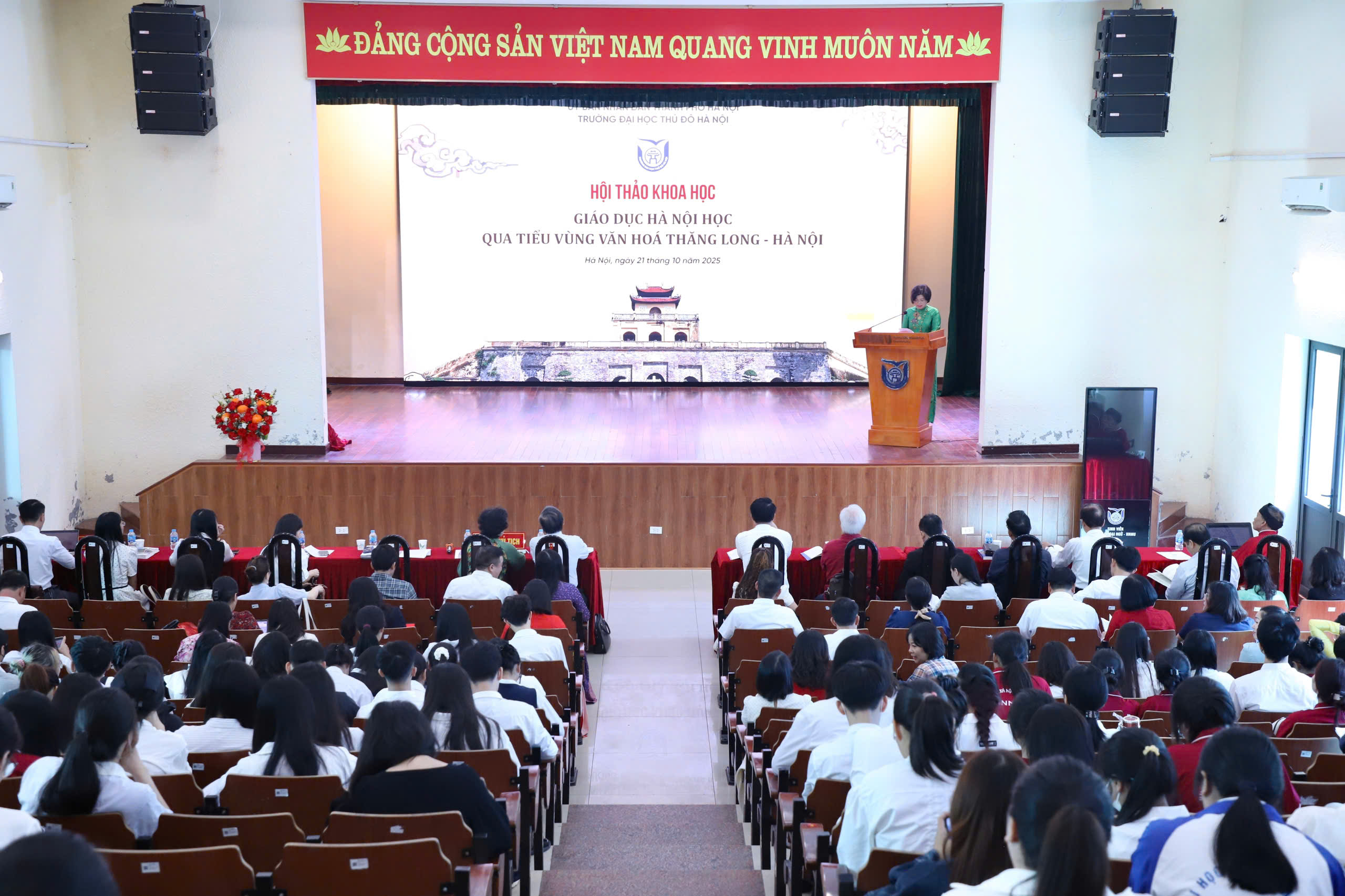
The seminar drew wide participation from scholars, experts, and education managers.
On the morning of October 21, 2025, at the Main Hall of Hanoi Metropolitan University, the scientific seminar themed “Teaching Hanoi Studies through the Cultural Sub-Regions of Thăng Long – Hanoi” took place. The event gathered numerous delegates, including researchers, lecturers, education administrators, and a large number of students, with the aim of exchanging ideas and establishing new directions for developing the subject of Hanoi Studies—contributing to the preservation, dissemination, and promotion of Thăng Long – Hanoi’s cultural values in the modern context.
Representing Hanoi Metropolitan University were Assoc. Prof. Dr. Nguyễn Văn Tuân – Vice Rector, Dr. Lê Thị Thu Hương – Director of the Institute of Hanoi Studies and International Training, and Dr. Bùi Văn Tuấn – Deputy Director of the Institute. Distinguished guests included Prof. Dr. People’s Teacher Nguyễn Quang Ngọc – Vice President of the Vietnam Association of Historical Sciences, Prof. Dr. Đỗ Thị Minh Đức – Hanoi National University of Education, Prof. Dr. Trương Quang Hải – Expert in Geography and Environment, former Deputy Director of the Institute of Vietnamese Studies and Development Sciences, Prof. Dr. Lê Hồng Lý – President of the Vietnam Folk Arts Association, Assoc. Prof. Dr. Nguyễn Đức Thắng – Vice Rector of Dong A University of Technology, Assoc. Prof. Dr. Bùi Xuân Đính – Vietnam Association of Ethnology and Anthropology, Dr. Bùi Thị Thanh Hoa – School of Interdisciplinary Sciences and Arts, Mr. Trương Minh Tiến – President of the UNESCO Association of Hanoi, Mr. Nguyễn Văn Biểu – Deputy Director of Hanoi Museum, and Dr. Vũ Hồng Thuật – Representative of the Vietnam Museum of Ethnology.
The seminar also welcomed leaders of research institutes, administrators of public and private schools across Hanoi, specialists, scientists, and media representatives. This event is part of the implementation of Program No. 06-CTr/TU of the Hanoi Party Committee on “Cultural Development, Improvement of Human Resource Quality, and Building Elegant and Civilized Hanoians for the 2021–2025 period.”
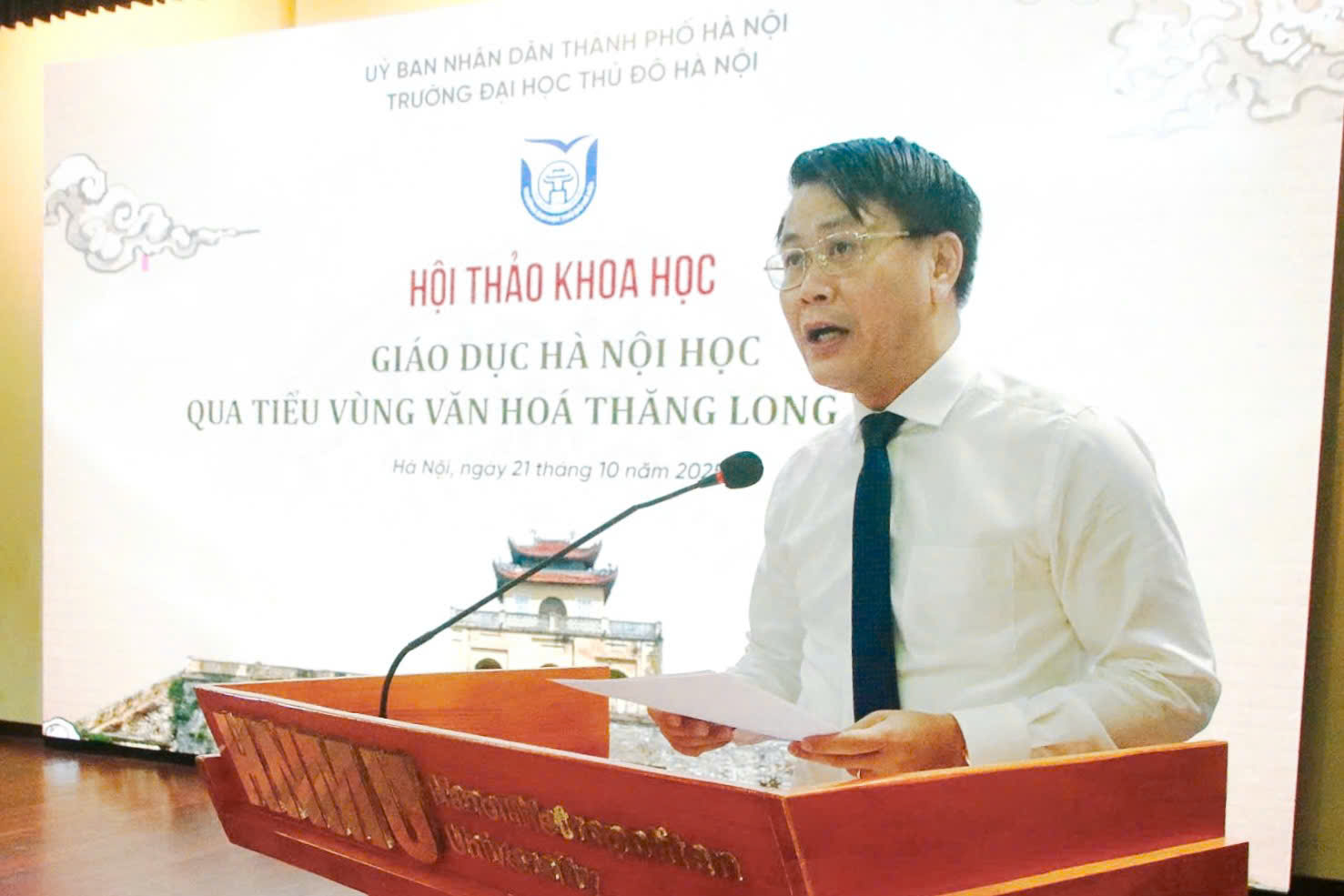
Assoc. Prof. Dr. Nguyễn Văn Tuân – Vice Rector of Hanoi Metropolitan University – delivering opening remarks.
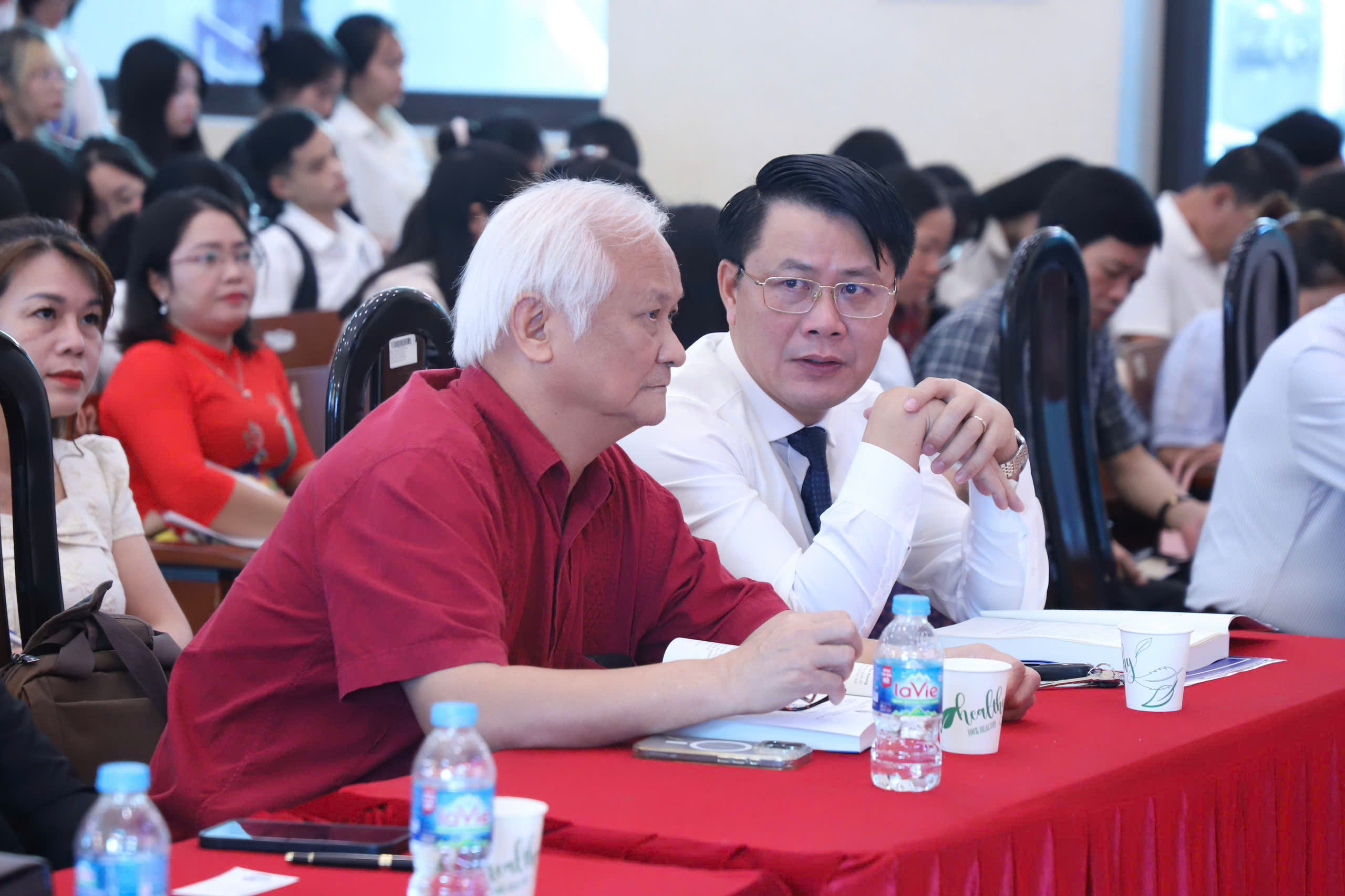
In his address, Assoc. Prof. Dr. Nguyễn Văn Tuân emphasized that the scientific seminar “Teaching Hanoi Studies through the Cultural Sub-Regions of Thăng Long – Hanoi” is not only an annual academic event but also one of deep scholarly and practical significance. It reaffirms the value and importance of Hanoi Studies within higher and general education.
As the first and only public university under the Hanoi People’s Committee, Hanoi Metropolitan University carries the mission of training and developing high-quality human resources for the Capital. The University has always regarded Hanoi Studies as a distinctive academic program reflecting both identity and responsibility in preserving, nurturing, and spreading the cultural values of Thăng Long – Hanoi.
In 2024, the University actively implemented the city’s cultural development program, collaborating with the Hanoi Department of Education and Training to train nearly 6,000 teachers, while organizing multiple workshops on teaching Hanoi Studies and local education. Faculty members, particularly from the Institute of Hanoi Studies and International Training, have played a pivotal role in developing the Local Education Textbook Series for Hanoi across all three levels of general education.
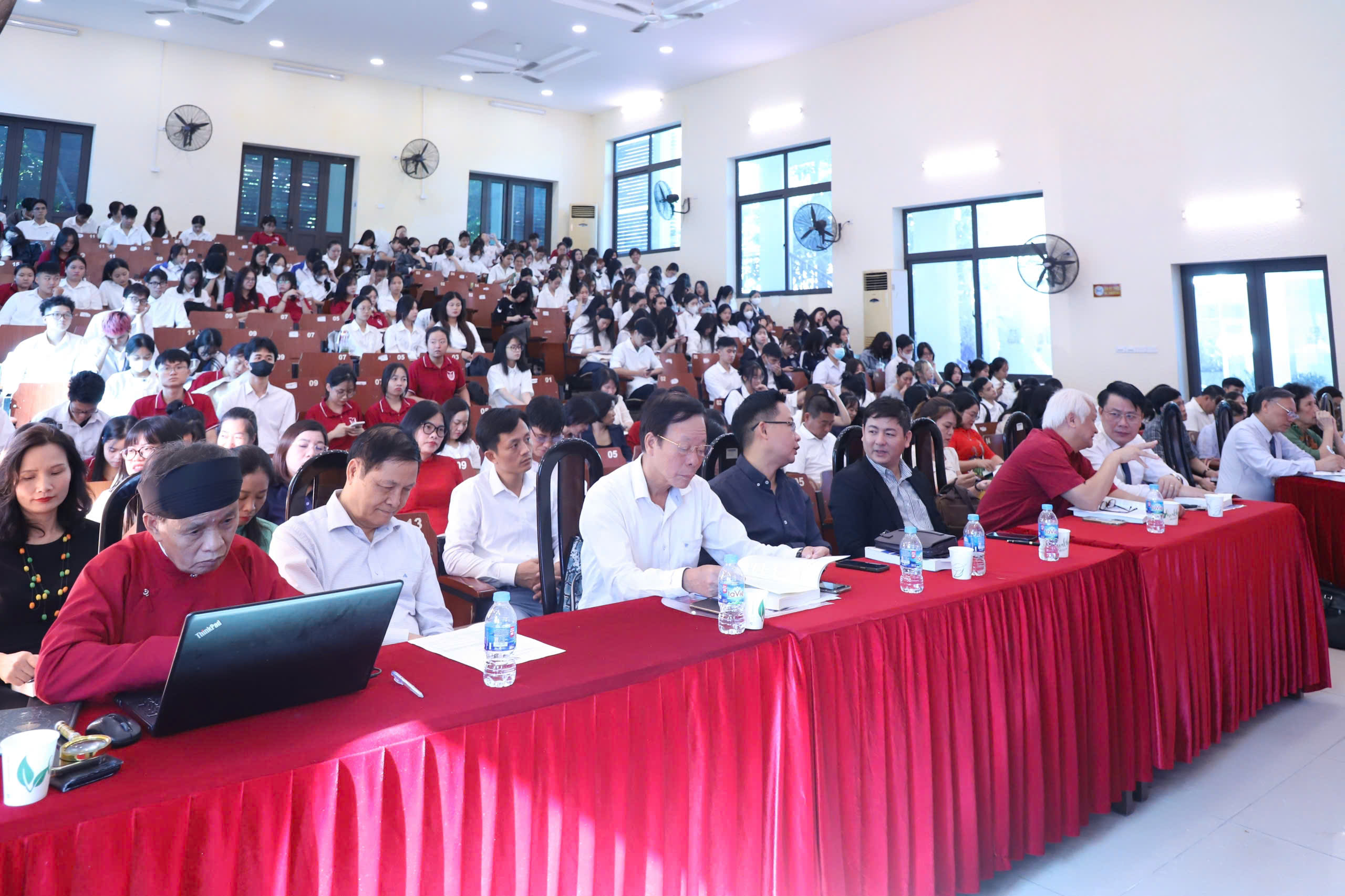
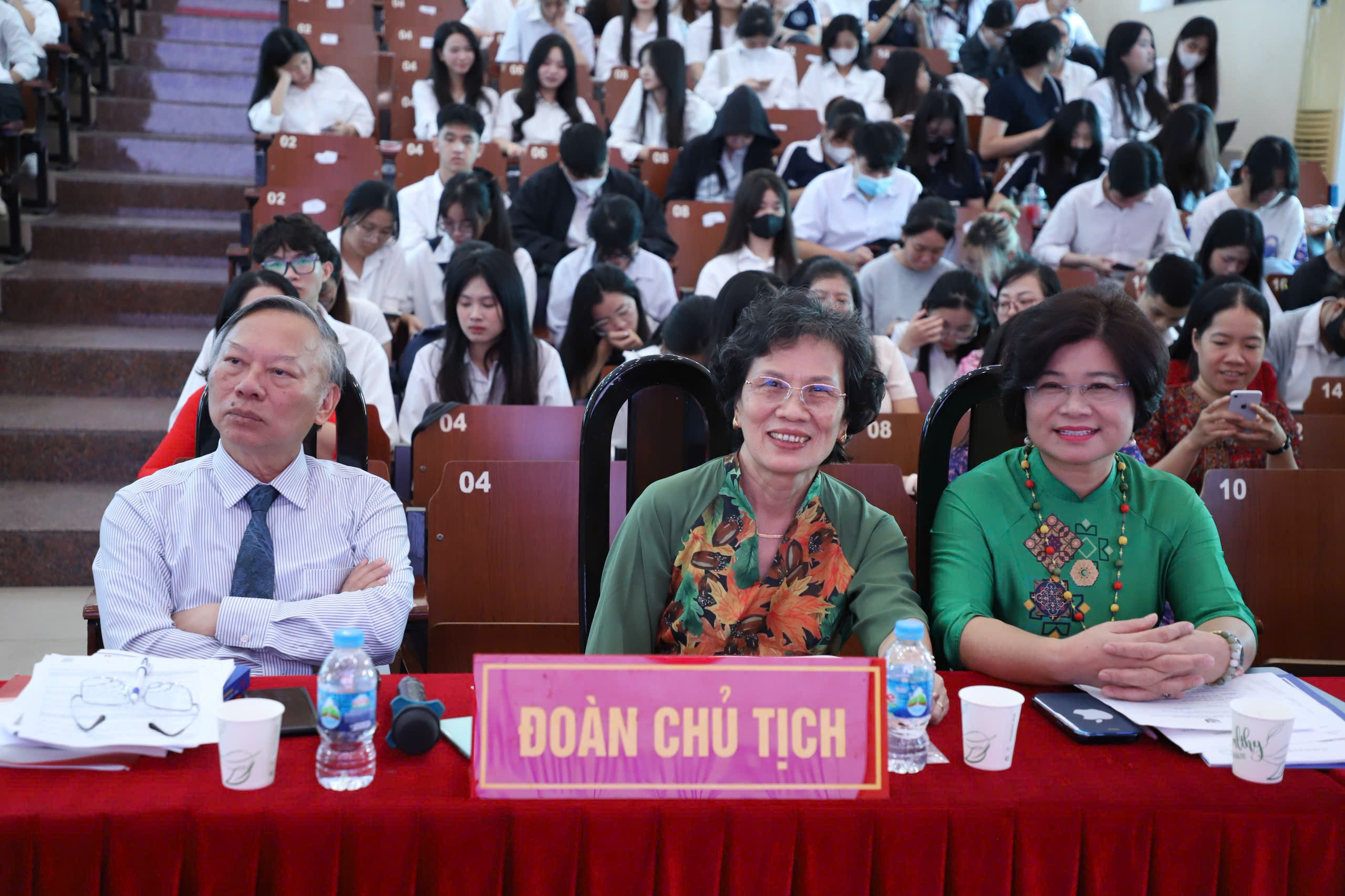
The Organizing Committee received over 50 academic papers from scholars, lecturers, experts, and teachers from across the Capital and the country. These papers demonstrated strong academic interest in Hanoi Studies and highlighted the far-reaching impact of the seminar’s theme. The submissions focused on three main areas: Research on the cultural sub-regions of Thăng Long – Hanoi. Current practices of teaching Hanoi Studies linked to these sub-regions. Solutions for preserving, exploiting, and promoting the cultural values of these regions in contemporary society. During the seminar, 10 outstanding presentations were delivered, offering diverse perspectives on the research, teaching, and promotion of Hanoi Studies in the modern era. The first group of presentations explored the geo-cultural values of Thăng Long – Hanoi, in which Prof. Dr. Đỗ Thị Minh Đức and Dr. Trần Thị Hồng Nhung (Hanoi National University of Education) analyzed the interplay between natural, historical, and human factors shaping the Capital’s identity. Assoc. Prof. Dr. Bùi Xuân Đính and Dr. Bùi Thị Thanh Hoa examined the characteristics of Hanoi people through the lens of tradition and modernity, while Dr. Lê Cẩm Ly (Institute of Cultural Studies) presented on the spiritual and artistic value of “Hầu đồng”, an intangible heritage of Thăng Long – Hanoi. In the field of education, Dr. Nguyễn Thị Thanh Hòa (Hanoi Metropolitan University) discussed the potential of Mọc villages along the Tô River in developing experiential heritage learning, and M.A. Đỗ Văn Tiến and M.A. Nguyễn Ngọc Tuấn (Air Defense – Air Force Academy) emphasized the role of digital technology in preserving and communicating the Capital’s cultural values. Reports from secondary school teachers, such as those from Chu Phan Secondary School, shared practical experiences in teaching Hanoi Studies, connecting theory with real-world exploration. Additionally, M.A. Phạm Thị Phượng and Dr. Lê Thị Thu Hương (Hanoi Metropolitan University) proposed innovative teaching methods and the integration of cultural heritage as living learning materials to cultivate love and pride for the Capital among students.
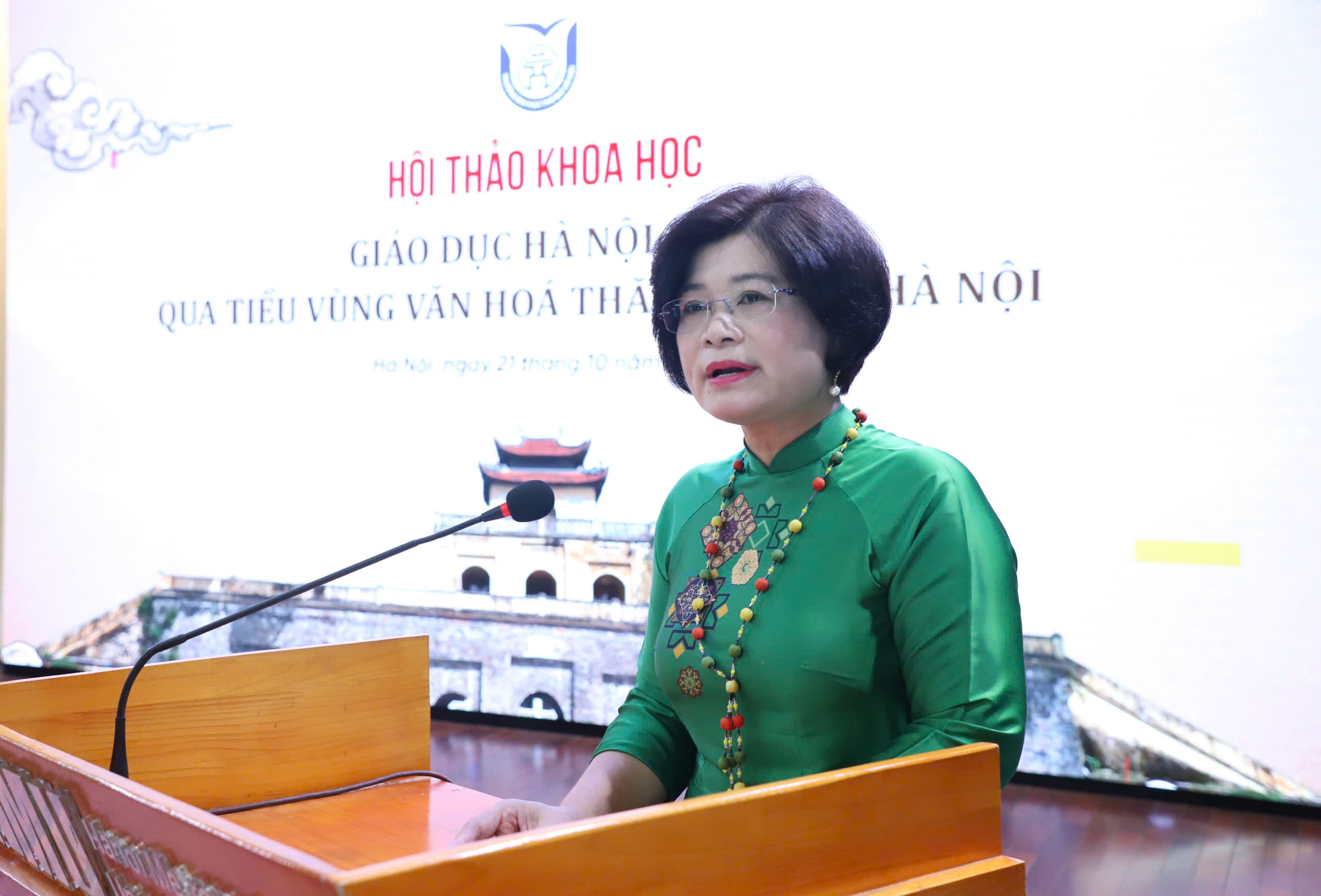
Dr. Lê Thị Thu Hương – Director of the Institute of Hanoi Studies and International Training – delivering remarks.
According to Dr. Lê Thị Thu Hương, although the discussions and papers could not cover every expectation of those passionate about Hanoi Studies, they demonstrated the serious and devoted efforts of scholars, educators, and researchers in systematizing and spreading the values of this unique discipline.
The scholars agreed that developing Hanoi Studies should go beyond classroom instruction, expanding into an interdisciplinary and applied research direction connecting education, communication, and urban development. This approach will enable Hanoi Metropolitan University to continue asserting its role as a pioneer institution in preserving, promoting, and inspiring appreciation for the cultural heritage of Thăng Long – Hanoi among future generations.
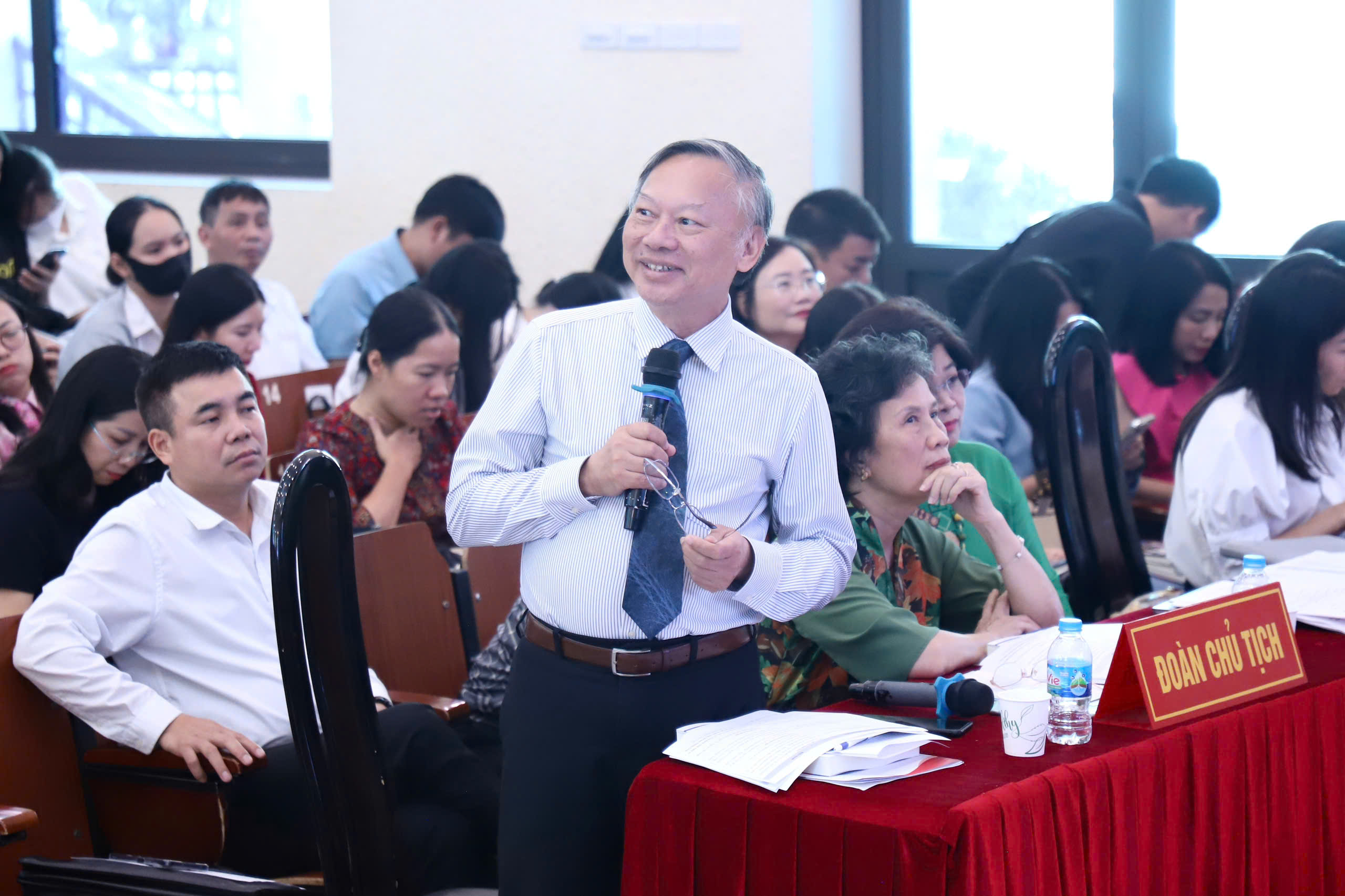
Prof. Dr. People’s Teacher Nguyễn Quang Ngọc – Vice President of the Vietnam Association of Historical Sciences – delivering the closing remarks.
In his concluding remarks, Prof. Dr. Nguyễn Quang Ngọc affirmed that the Institute of Hanoi Studies and International Training has established itself as a true center for research and education in Hanoi Studies, embodying the wisdom, dedication, and aspiration to contribute to the Capital’s cultural and educational development. He emphasized that research and education must advance together—like two steady legs of a healthy body. Only through this synergy can Hanoi Studies achieve sustainable development and continue to spread the cultural essence of Thăng Long – Hanoi into contemporary society.
